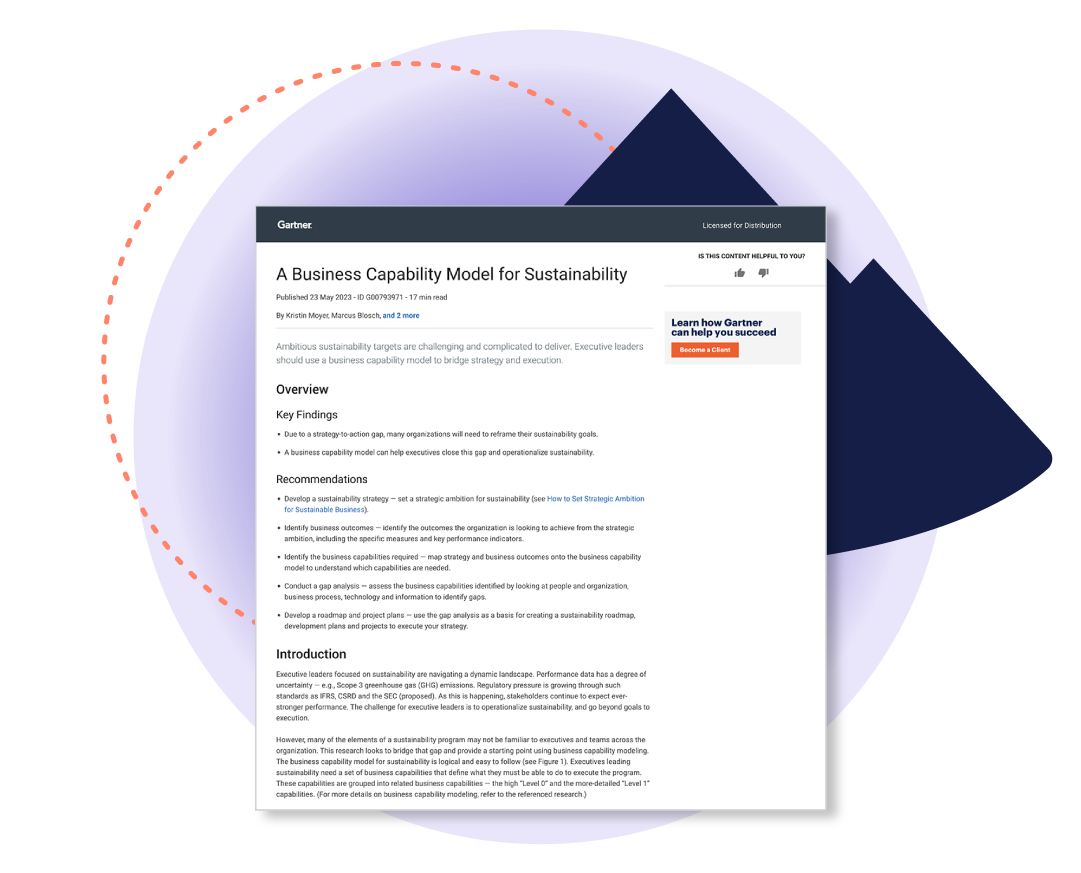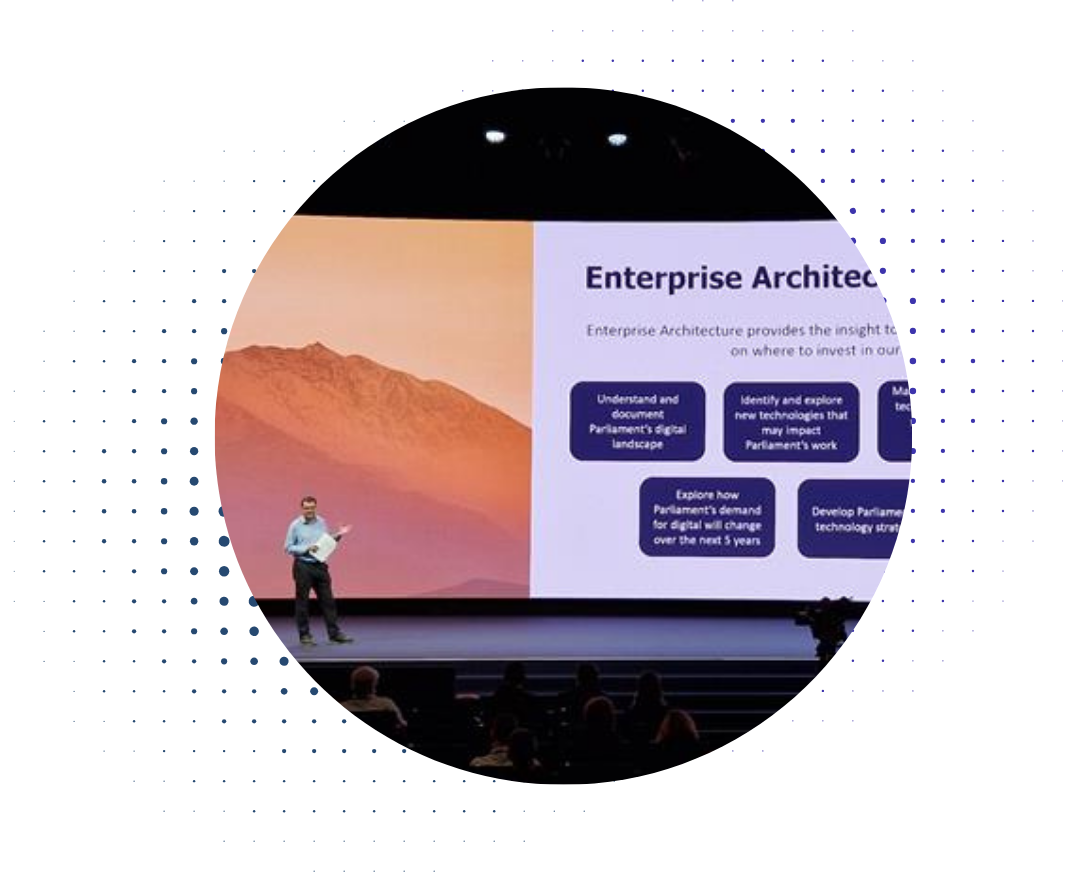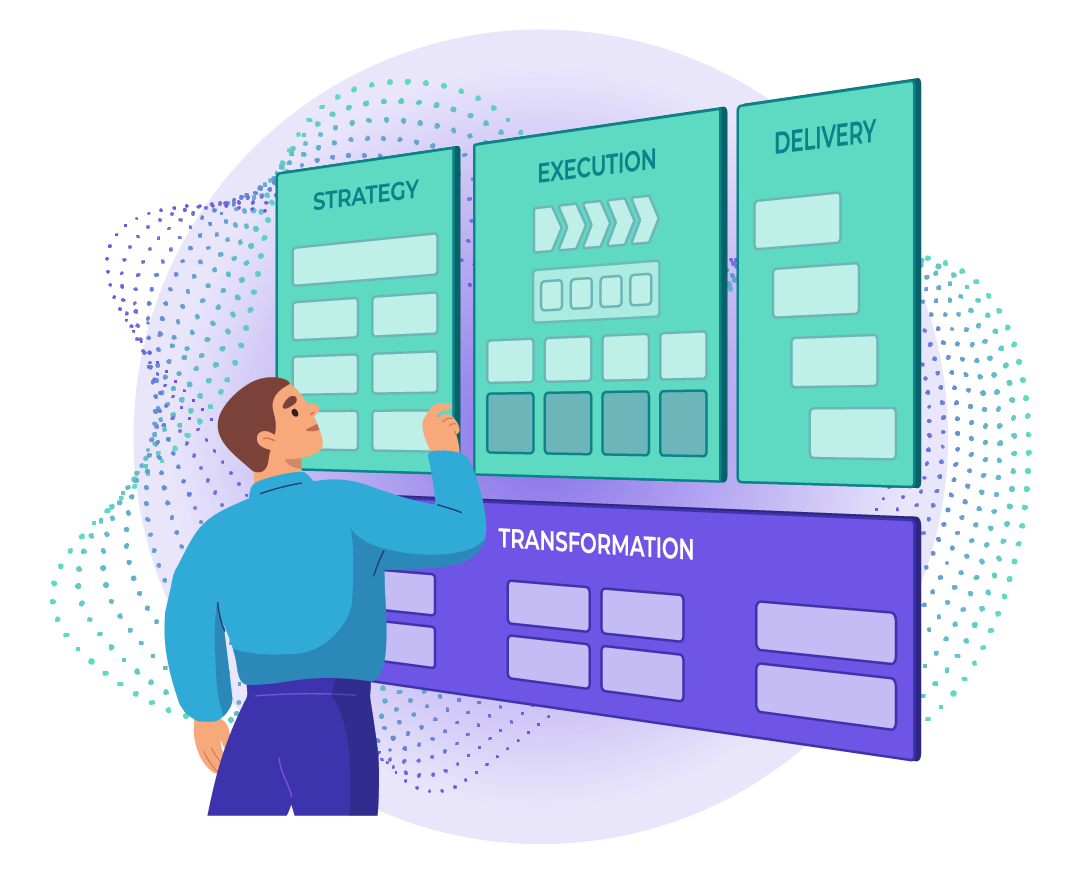In boardrooms worldwide, sustainability commitments are increasingly prioritized. Research from L.E.K Consulting shows that over half of C-suite and senior executives are ready to tackle environmental, social, and governance (ESG) issues, even at the cost of short-term financial performance. However, aligning these ambitious targets with actual business operations remains a challenge. Less than 10% of businesses have fully realized their ESG strategies, according to The Open University.
This gap is where a business capability model can play a crucial role. By translating lofty sustainability goals into defined business capabilities, companies can chart a clearer path to achieving their ESG objectives. Such a model not only helps in identifying the necessary capabilities but also serves as a blueprint for integrating sustainability into the very fabric of organizational operations.
The importance of this approach is underscored by a recent Gartner® report, ‘A Business Capability Model for Sustainability.’ The report highlights how executive leaders can use a business capability model to operationalize sustainability, ensuring that strategic goals are embedded into daily business processes.
The urgency for adopting a business capability model to demonstrate real progress on sustainability commitments is driven by many factors. There is a financial incentive to do so; the Harvard Business Review found that 80% of academic studies indicate a positive correlation between sustainable business practices and a company’s stock price performance. Brand positioning and employee satisfaction also play a role. Research shows that 84 percent of consumers are more likely to be loyal to a brand whose values align with their own. A survey by IBM also found that respondents are more likely to apply for and accept jobs at environmentally sustainable companies, even going as far as accepting a lower salary from such organizations.
On top of this, increasingly stringent regulations are placing more responsibility on businesses to meet sustainability targets.
Whether it's reducing carbon footprints, enhancing social equity, or ensuring robust governance practices, a business capability model provides a structured way to help achieve these goals.
To learn more about how your organization can benefit from implementing a Business Capability Model for Sustainability, and to gain insights into bridging the strategy-to-action gap, download the full Gartner® report.
Gartner, A Business Capability Model for Sustainability, By Kristin Moyer, Marcus Blosch, Aapo Markkanen, Yefim Natis, 23 May 2023.
GARTNER is a registered trademark and service mark of Gartner, Inc. and/or its affiliates in the U.S. and internationally and is used herein with permission. All rights reserved.




.png)


